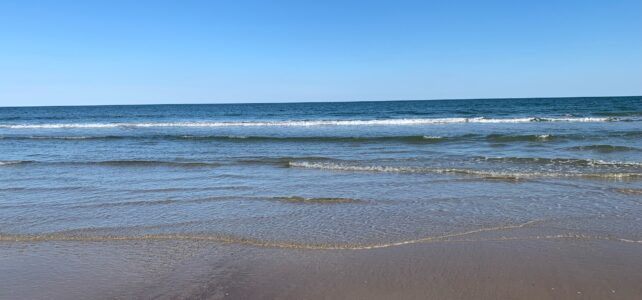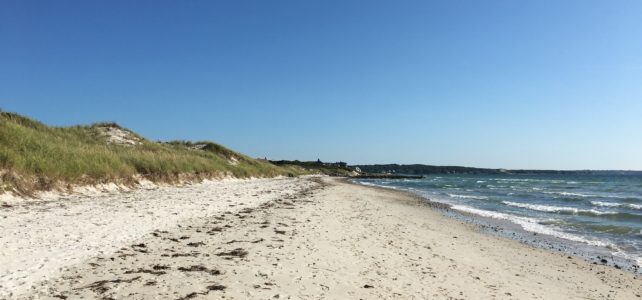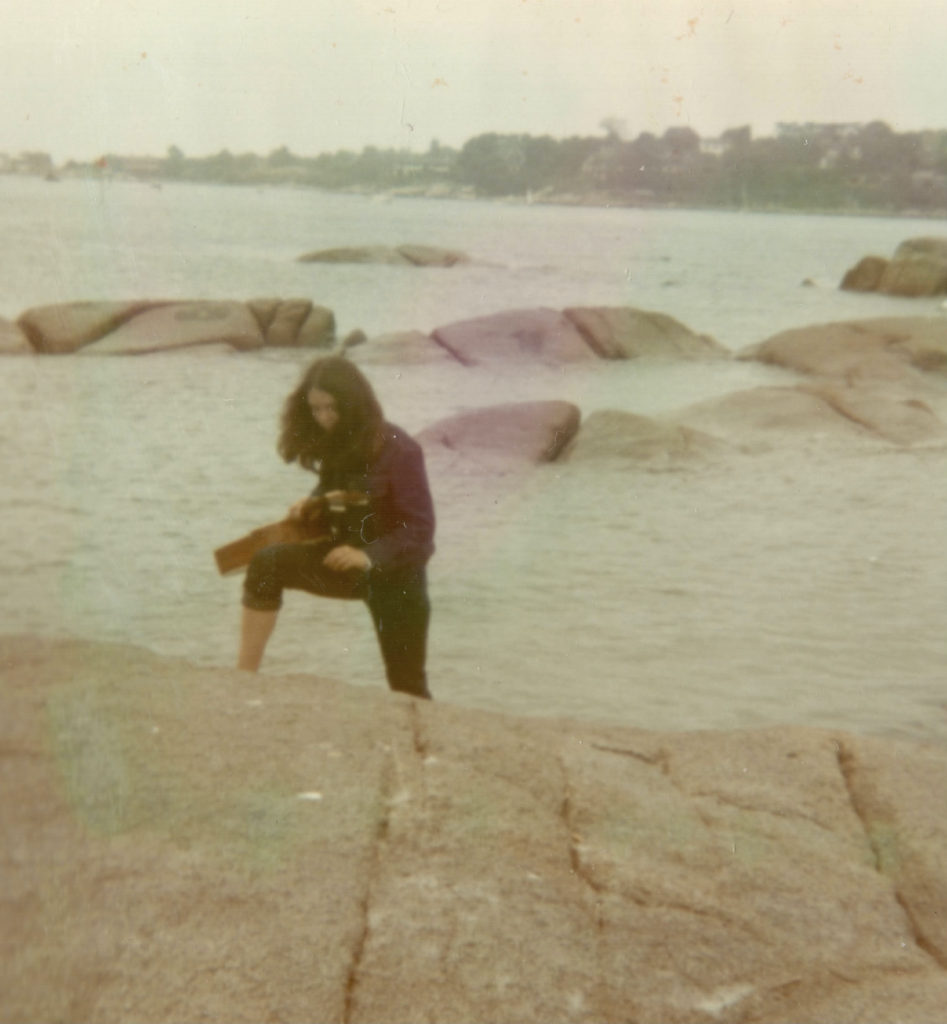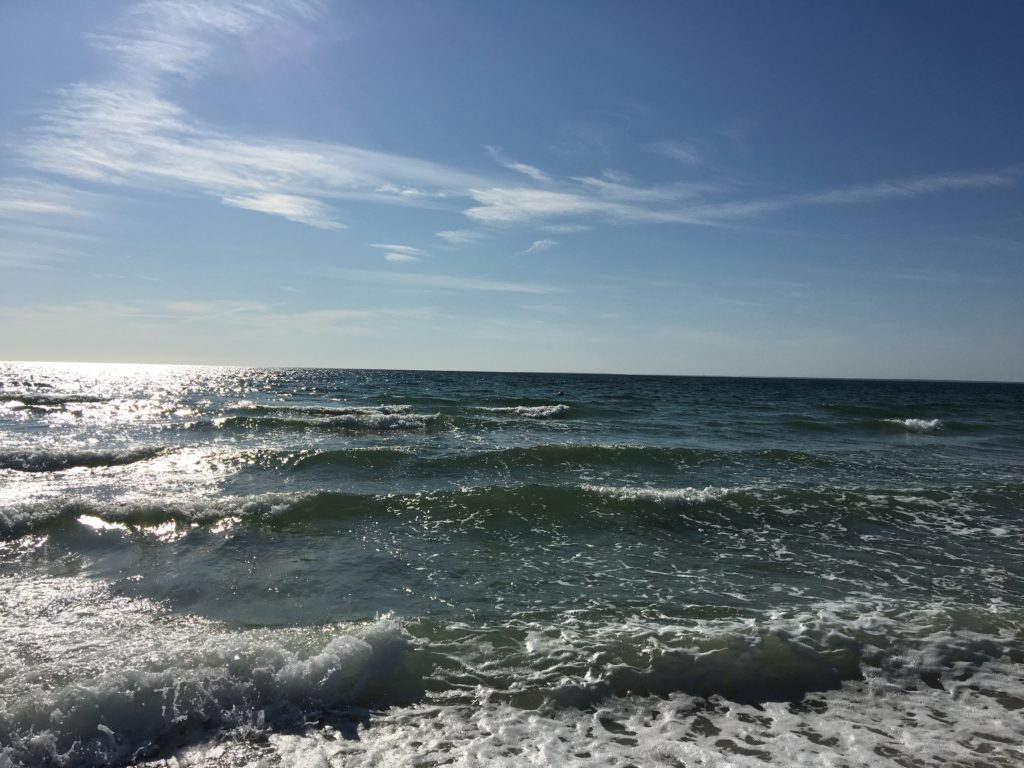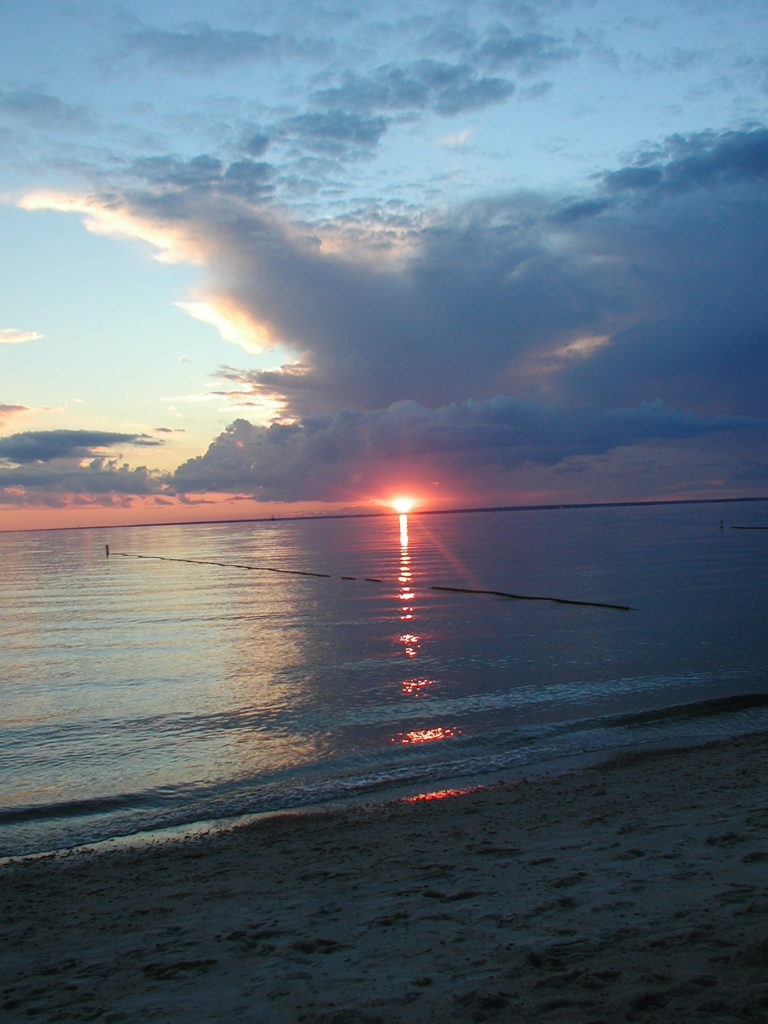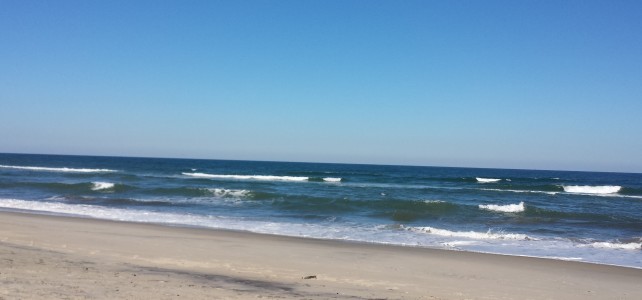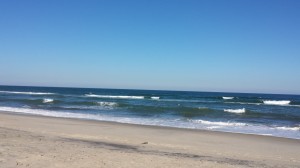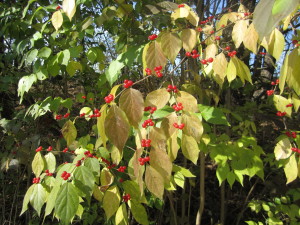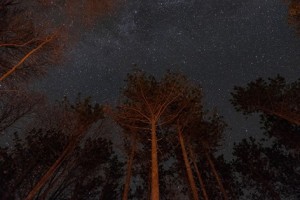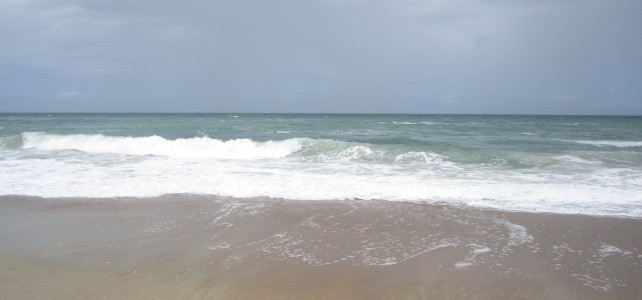In honor of National Poetry Month, I offer this poem.
Baptism It happens sometimes in early spring or fall or any bright day when the air is chill despite our star’s faithful burning. I’m walking outside and everything is shining. Suddenly the sky – - flowing around every bit of matter in its path - transforms, and I now walk through water that yields just enough to let me enter. With every step I’m encased in a glorious glove of cool, liquid shine. I can’t see the stuff sky has become, but my heart quickens and I must make an effort not to fall on my knees. I glance at other walkers and wonder if they feel the same or if this is a private miracle, a baptism that opens my soul to morning’s glory, that refuses to let me move on ungrateful. I can’t remember the first time I knew sky could turn into water and back to breath again in an instant.
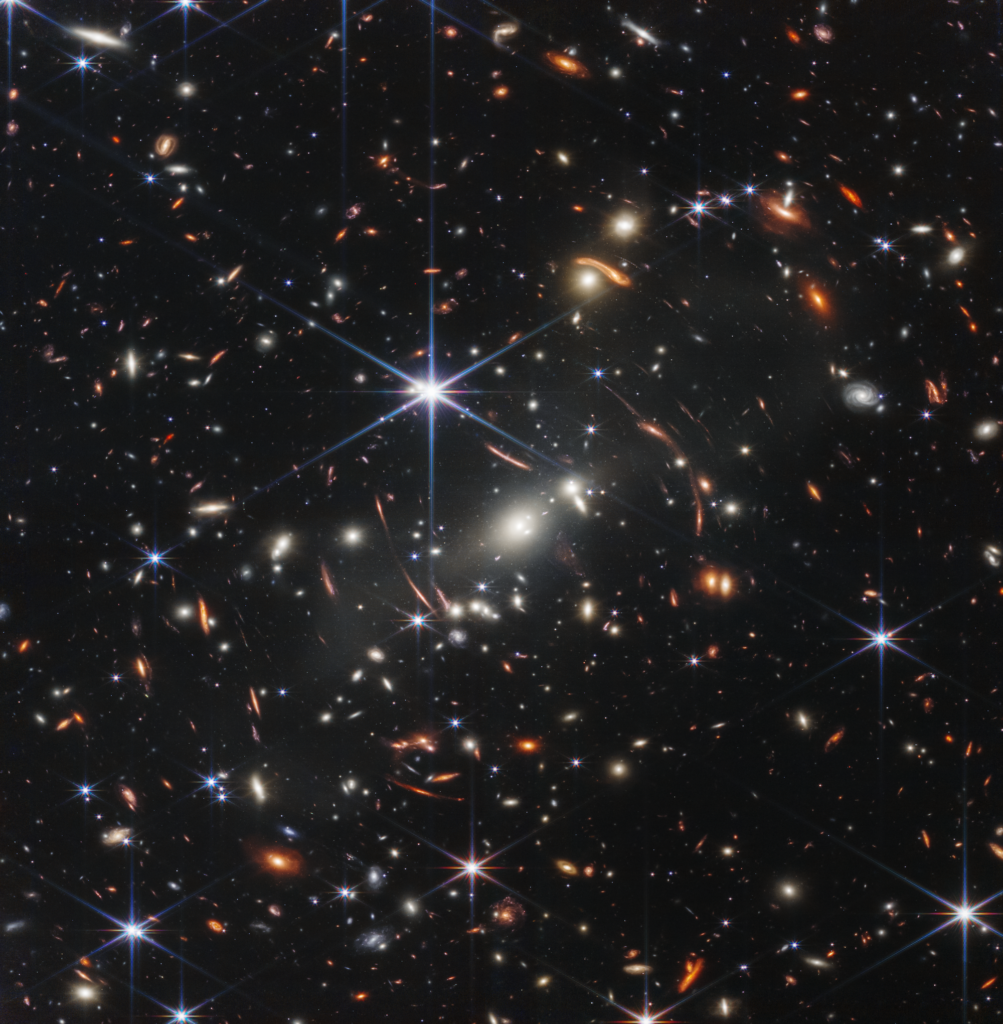
Mystery is mystery though somewhere I read that everything is entangled, that an atom in one place remains connected to a partner that has moved to some other place in the universe.
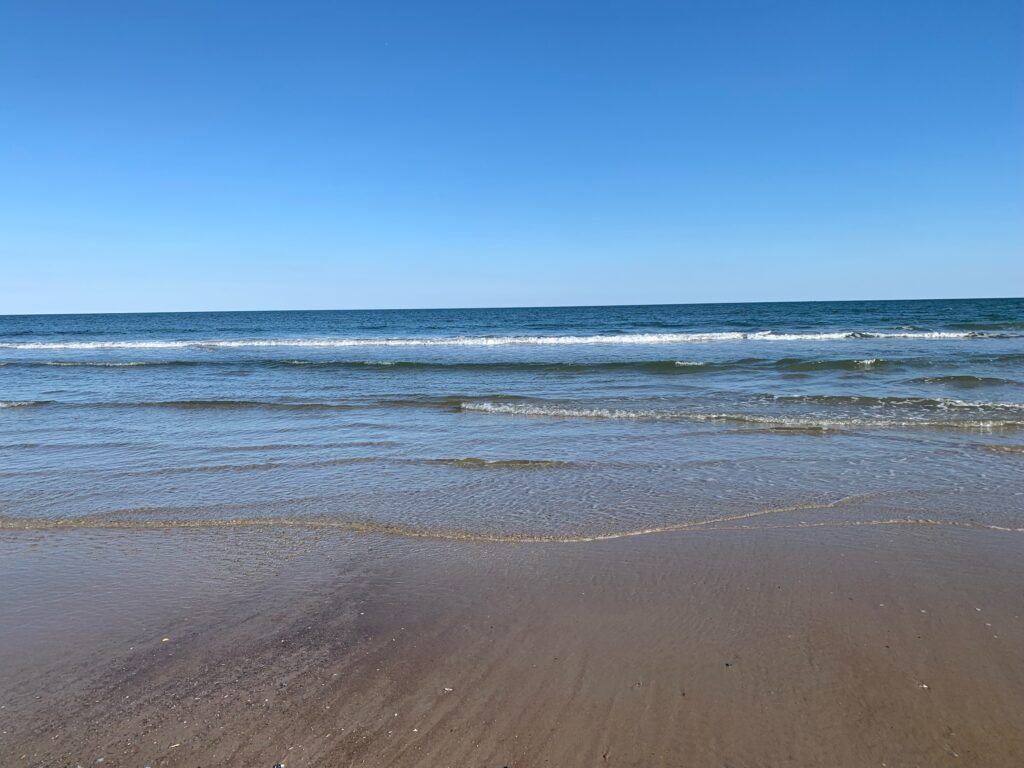
Perhaps the sky once lay long and sweet against the ocean until they knew they were the same thing in different dress, like puddles that become sky on the driveway after a rain. When the moment passes, sky’s blessing being given, I emerge into air-breath, changed as surely as if I’d been walking the beach and waded into the water and crouched beneath a wave as it washed over me and rose up renewed, awake, in love with the world again.
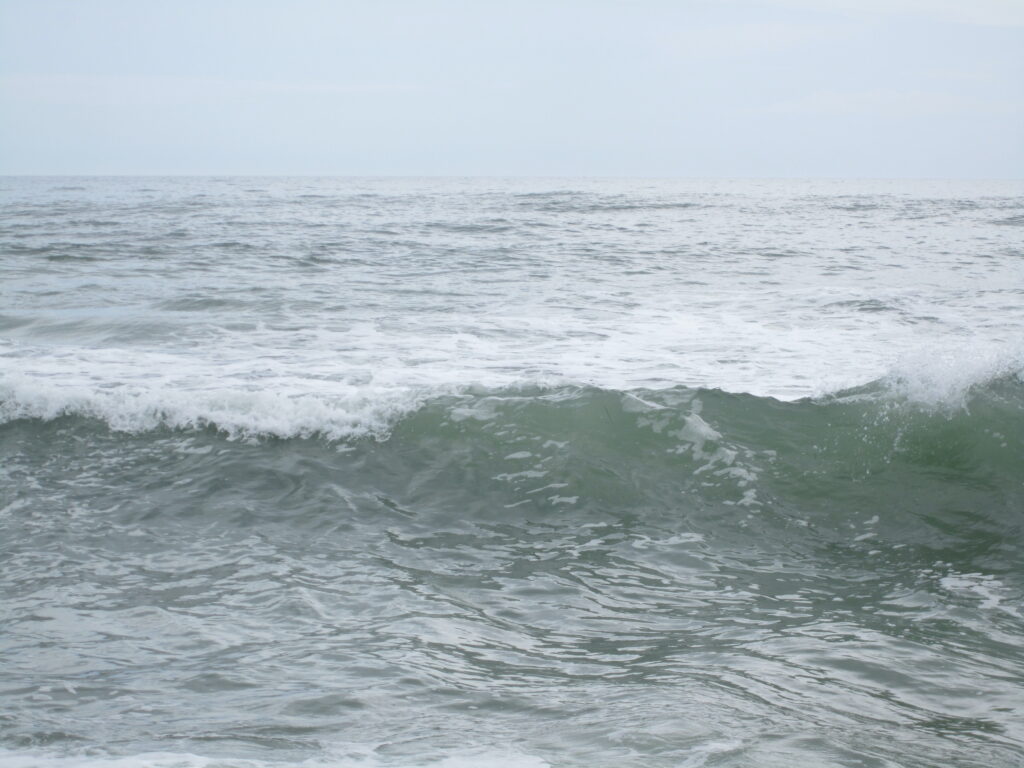
© 2024 Mary van Balen
Photos:
James Webb Space Telescope’s First Deep Field images. Galaxy Cluster NASA ESA CSA STSCI
Ocean photos: Mary van Balen
